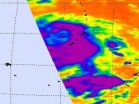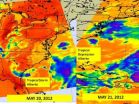(Press-News.org) WASHINGTON— The uproar that began last year when the U.S. Preventive Services Task Force stated that doctors should no longer offer regular prostate-cancer tests to healthy men continued this week when the task force released their final report. Overall, they stuck to their guns, stating that a blood test commonly used to screen for prostate cancer, the PSA test, causes more harm than good — it leads men to receive unnecessary, and sometimes even dangerous, treatments.
But many people simply don't believe that the test is ineffective. Even faced with overwhelming evidence, such as a ten-year study of around 250,000 men that showed the test didn't save lives, many activists and medical professionals are clamoring for men to continue receiving their annual PSA test. Why the disconnect?
In an article published in Psychological Science, a publication of the Association for Psychological Science, researchers Hal R. Arkes, of Ohio State University, and Wolfgang Gaismaier, from the Max Planck Institute for Human Development in Berlin, Germany, picked apart laypeople's reactions to the report, and examined the reasons why people are so reluctant to give up the PSA test.
"Many folks who had a PSA test and think that it saved their life are infuriated that the Task Force seems to be so negative about the test," said Arkes.
They suggest several factors that may have contributed to the public's condemnation of the report. Many studies have shown that anecdotes have power over a person's perceptions of medical treatments. For example, a person can be shown statistics that Treatment A works less frequently than Treatment B, but if they read anecdotes (such as comments on a website) by other patients who had success with Treatment B, they'll be more likely to pick Treatment B. The source of the anecdotes matters too. If a friend, a close relative, or any trusted source received successful treatment, they would be more likely to recommend that treatment to others, even if there was evidence showing the treatment only works for a minority of people.
Arkes and Gaismaier also propose that the public may have recoiled against the task force's recommendations so fiercely because they weren't able to properly evaluate the data in the report. Confusion over the use of control groups may have led people in the general public to weigh the data differently than medical professionals did.
"How to change this is the million-dollar question," said Arkes. "Pictorial displays are far easier to comprehend than statistics. The two figures in our article depict the situation more clearly than text and numbers can do. I think data displayed in this manner can help change people's view of the PSA test because we compare the relative outcomes of being tested and not being tested. Without that comparison, it is tough for the public to appreciate the relative pluses and minuses of the PSA test versus not having the PSA test."
Men will be able to continue to request the PSA test, and it will be covered by health insurance for the foreseeable future. But psychological science suggests that unless people are convinced to choose statistics over anecdotes, confusion surrounding the test's effectiveness will linger.
###
For more information about this study, please contact: Hal R. Arkes at arkes.1@osu.edu.
The APS journal Psychological Science is the highest ranked empirical journal in psychology. For a copy of the article "Psychological Research and the Prostate-Cancer Screening Controversy" and access to other Psychological Science research findings, please contact Anna Mikulak at 202-293-9300 or amikulak@psychologicalscience.org.
Psychological Science explains uproar over prostate-cancer screenings
2012-05-23
ELSE PRESS RELEASES FROM THIS DATE:
Array of light for early disease detection?
2012-05-23
A special feature in this week's issue of the journal Science highlights protein array technology, touching on research conducted by Joshua LaBaer, director of the Biodesign Institute's Virginia G. Piper Center for Personalized Diagnostics.
With the successful completion of the Human Genome Project, research attention is increasingly focusing on proteins. Versatile products produced from genetic templates, proteins are principle actors in both the maintenance of health and the onset of illness. Protein microarrays are a means of bridging the gap between analysis of the ...
NASA Sees Eastern Pacific's Second Tropical Storm Form
2012-05-23
On May 21, NASA satellites were monitoring Tropical Depression 02E in the eastern Pacific Ocean, and 24 hours later it strengthened into the second tropical storm of the season. Tropical Storm Bud was captured by NOAA's GOES-13 satellite on May 22, and appears to be well-formed.
Tropical Storm Bud isn't going to stop there, however. According to the forecasters at the National Hurricane Center, Bud is expected to become a hurricane because of light to moderate wind shear and warm sea surface temperatures.
On May 22 at 0900 UTC (2 a.m. PDT/5 a.m. EDT), Tropical Storm ...
NASA satellite sees Tropical Storm Sanvu pass Guam, strengthen
2012-05-23
Tropical Depression 03W in the western North Pacific did exactly what forecasters expected over the last twenty-four hours: it became a tropical storm named Sanvu and passed west of Guam on a northwesterly track.
On May 22 at 0900 UTC (5 a.m. EDT), Tropical Storm Sanvu was more than 100 miles west-northwest of Andersen Air Force Base, Guam, and still over 600 nautical miles south of Iwo To, Japan and headed in that direction. Sanvu's center was located near 15.2 North and 141.9. East. It was still churning up rough surf around Guam. Sanvu has maximum sustained winds near ...
Barrow researchers use magic for discoveries
2012-05-23
(Phoenix, AZ May 22, 2012) -- Researchers at Barrow Neurological Institute at St. Joseph's Hospital and Medical Center have unveiled how and why the public perceives some magic tricks in recent studies that could have real-world implications in military tactics, marketing and sports.
Susana Martinez-Conde, PhD, of Barrow's Laboratory of Visual Neuroscience, and Stephen Macknik, PhD, of Barrow's Laboratory of Behavioral Neurophysiology are well known for their research into magic and illusions. Their most recent original research projects, published in Frontiers in Human ...
Alberto now a tropical depression, seen by NASA
2012-05-23
Infrared satellite imagery from NASA's Aqua satellite revealed Alberto weakened from a tropical storm to a tropical depression as it appears more disorganized. At 10:30 a.m. EDT on May 21, Tropical Storm Alberto weakened to a tropical depression, and has maintained that status today, May 22.
As of 5 a.m. EDT on May 22, Alberto's maximum sustained winds were near 35 mph (55 kph) but he is expected to weaken in 24 hours. Alberto was centered about 220 miles south of Cape Hatteras, North Carolina, near 32.0 North and 75.5 West. Alberto was moving to the northeast near 15 ...
Cleft lip/palate cause much more than cosmetic problems
2012-05-23
MAYWOOD, Ill. -- Children born with cleft lip, cleft palate and other craniofacial disorders face numerous medical challenges beyond appearance.
Patients can face serious airway, feeding, speech and hearing problems, as well as social and psychological challenges, Laura Swibel Rosenthal, MD, of Loyola University Medical Center and colleagues write in the June 2012 issue of Otolaryngologic Clinics of North America.
"The management of patients with craniofacial syndromes is complex," Rosenthal and colleagues write. "Otolaryngologic [ear-nose-throat] evaluation is of paramount ...
Scientists start explaining Fat Bastard's vicious cycle
2012-05-23
This press release is available in French.
VIDEO:
Stephanie Fulton of Université de Montréal and its affiliated research hospital studies the behavior of mice and their brain chemistry to reveal how humans may act in similar circumstances.
Click here for more information.
Fat Bastard's revelation "I eat because I'm depressed and I'm depressed because I eat" in the Austin Powers ...
Weight loss improves SBD and metabolic dysregulation in obese children
2012-05-23
ATS 2012, SAN FRANCISCO –Weight loss improved both metabolic parameters and sleep-disordered breathing (SDB) in obese children in a new study from researchers in Belgium, confirming links between metabolic dysregulation, SDB and obesity.
"SDB is highly prevalent in childhood obesity, and may be a risk factor for the metabolic syndrome. In our population of 224 obese children and adolescents, 30% had SDB, which was significantly correlated with metabolic parameters, including aspartate aminotransferase (ASAT), alanine aminotransferase (ALAT) and HDL cholesterol at baseline," ...
Severity of sleep disordered breathing predicts glycemic health
2012-05-23
ATS 2012, SAN FRANCISCO –The severity of sleep disordered breathing and nocturnal hypoxemia independently predict both glycosylated hemoglobin (HbA1c) levels and type 2 diabetes mellitus (T2DM), according to a new study.
"Because people with obstructive sleep apnea syndrome (OSAS) are often overweight or obese it has been difficult to interpret earlier studies of the relationship between sleep disordered breathing and metabolic disorders," said Brian Kent, MBBCh, research fellow at St. Vincent's University Hospital in Dublin. "We found that obstructive sleep apnea syndrome ...
Oniqua Announces Major Enhancements to Material and Catalog Standards Database Solution
2012-05-23
Oniqua MRO Analytics (www.oniqua.com), the leading provider of analytics-based MRO optimization solutions for asset-intensive organizations, today announced significant enhancements to its Oniqua Standards Dictionary (OSD) database solution.
Available on an online subscription basis, OSD is a comprehensive material and catalog standards environment specifically designed, built and optimized for asset-intensive industries.
OSD 3.0 maximizes efficiencies in cataloging while minimizing inconsistencies and errors in completed cataloged records. It is designed to assist ...




